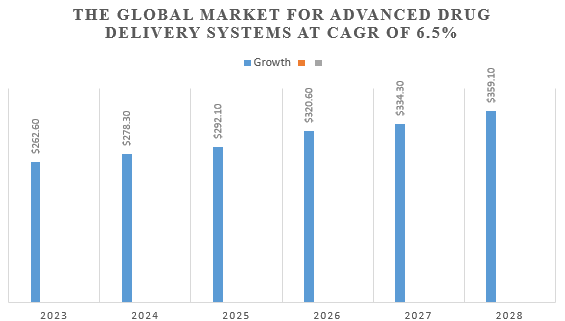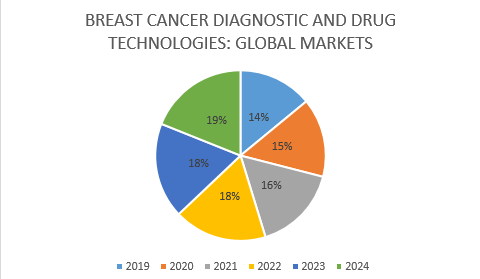We are thrilled to extend a warm virtual welcome to all esteemed participants, speakers, experts, and attendees joining us for this prestigious event 12th International Conference on Gynecology and Obstetrics scheduled to be held on August 28-29, 2024 in Paris, France. Our goal is to foster collaboration, inspire innovation, and drive positive change in women's healthcare through knowledge sharing and networking opportunities.
This year's conference theme, "Empowering Women's Health: Innovations, Challenges, and Solutions," reflects our commitment to addressing the evolving landscape of women's healthcare with innovative strategies, navigating challenges, and exploring sustainable solutions for better outcomes. Throughout the next two days, we invite you to engage in insightful discussions, gain valuable insights from renowned speakers, explore cutting-edge research, and forge meaningful connections with colleagues from around the globe.
Our conference is a unique platform that brings together leading experts, researchers, and healthcare professionals from around the world to share groundbreaking advancements and best practices in the field of gynecology.
Thank you for your participation and dedication to advancing women's health worldwide. We look forward to an enriching and impactful conference experience!
Benefits of Attending Euro Gynecology Congress 2024
Knowledge Expansion: Conferences provide access to the latest research, advancements, and best practices in gynecology.
Networking Opportunities: Conferences bring together experts, specialists, and professionals from various disciplines within gynecology.
Research Presentation: Conferences often feature opportunities for researchers to present their work through abstract submissions, poster presentations, and oral presentations. Presenting research allows for peer feedback, exposure to diverse perspectives, and recognition for contributions to the field.
Interdisciplinary Collaboration: Gynecology conferences may include sessions or tracks that involve interdisciplinary collaboration with specialties such as obstetrics, reproductive endocrinology, oncology, urology, and pelvic floor disorders. Collaborative discussions can lead to comprehensive patient care approaches and holistic treatment plans.
Motivation and Inspiration: Conferences often feature keynote speakers, panel discussions, and success stories from leaders in gynecology. Inspirational talks and motivational sessions can energize attendees, reignite passion for their work, and inspire innovative approaches to patient care.
Target Audience:
-
Gynecologists
-
Obstetricians
-
Infertility Specialists
-
Gynecology Surgeons
-
Obstetrician-Gynecologists (OB-GYNs)
-
Reproductive Endocrinologists
-
Urogynecologists
-
Maternal-Fetal Medicine Specialists
-
Gynecologic Oncologists
-
Women’s Health Care Researchers
-
Medical Students & Researchers
-
Healthcare Associations, Pharma Companies, and Societies
-
Health Care Professionals
-
Business Entrepreneurs
-
Midwife Nurse Educator and Registered Nurse
-
Embryologists
-
Anaesthesiologists
Track 1: Reproductive Endocrinology and Infertility
Reproductive Endocrinology and Infertility (REI) is a specialized field within gynecology that focuses on the diagnosis and treatment of hormonal and reproductive disorders affecting both men and women. With advancements in medical technology and research, REI has witnessed significant progress in understanding and managing infertility, hormonal imbalances, and related conditions. The below techniques have revolutionized the field of infertility treatment, offering hope to couples struggling with conception.
-
In Vitro fertilization (IVF)
-
Intracytoplasmic sperm injection (ICSI)
-
Egg freezing
-
Preimplantation genetic testing
Track 2: Menstrual Disorders and Hormonal Imbalance
Menstrual disorders and hormonal imbalance are common concerns among women that can significantly impact their quality of life and reproductive health. These conditions encompass a range of abnormalities in the menstrual cycle, hormone levels, and associated symptoms. One of the most prevalent menstrual disorders is polycystic ovary syndrome (PCOS), characterized by irregular periods, hormonal imbalances (elevated androgens), ovarian cysts, and metabolic disturbances. Other menstrual disorders include
-
Amenorrhea
-
Oligomenorrhea
-
Menorrhagia
-
Dysmenorrhea
Track 3: Gynecologic Oncology
Gynecologic oncology is a specialized field of medicine focused on the diagnosis, treatment, and management of cancers affecting the female reproductive system. This includes cancers of the ovaries, uterus, cervix, fallopian tubes, vagina, and vulva. The primary goal of gynecologic oncology is to provide comprehensive and personalized care to women diagnosed with gynecologic cancers. This involves early detection through screening programs, accurate diagnosis using advanced imaging and biopsy techniques, and development of individualized treatment plans based on the stage, type, and characteristics of the cancer. Treatment modalities in gynecologic oncology may include
Track 4: Adolescent and Pediatric Gynecology
Adolescent and Pediatric Gynecology is a specialized field of medicine that focuses on the reproductive health and well-being of young girls and adolescents. During this pivotal stage of development, young individuals may encounter various gynecological issues that require sensitive and age-appropriate care. With a focus on patient education, confidentiality, and empowering adolescents to make informed decisions about their bodies, adolescent gynecology aims to ensure the well-being and reproductive health of young individuals as they transition into adulthood. The Concerns of adolescent gynecology includes
-
Menstrual irregularities
-
Contraception counseling
-
Sexual health education
-
HPV vaccination
Track 5: Contraception and Family Planning
Contraception and family planning play pivotal roles in reproductive health, offering individuals and couples the ability to make informed choices about when and if to have children. Family planning services not only focus on preventing unintended pregnancies but also provide counseling, education, and support for individuals and couples to achieve their desired family size and spacing of pregnancies. It also contributes to broader public health goals by improving maternal and child health outcomes, supporting healthy pregnancies, and promoting overall well-being for individuals and families. The field of contraception encompasses a wide range of methods, including hormonal contraceptives like
-
Pills and patches
-
Injections, and implants
-
Intrauterine devices
-
Sterilization procedures
Track 6: Gynecological Infectious Diseases
Gynecological infectious diseases encompass a range of conditions that affect the female reproductive system and are often caused by bacteria, viruses, fungi, or parasites. These infections can lead to various symptoms such as vaginal discharge, itching, burning sensation, pelvic pain, and abnormal bleeding. Treatment typically involves antimicrobial drugs, antifungal agents, and antiviral drugs, depending on the specific infection. Common gynecological infections include
-
Bacterial vaginosis
-
Yeast infections
-
Sexually transmitted infections
-
Human papillomavirus (HPV) infections
Track 7: Aesthetic gynecology
Aesthetic gynecology refers to the field of medicine focused on enhancing the appearance and function of the female genitalia. It encompasses various procedures aimed at improving both the physical appearance and sexual confidence of women. Aesthetic gynecology can have a positive impact on women's self-esteem, body image, and sexual well-being. Patients considering these procedures should undergo thorough consultations to discuss their goals, expectations, potential risks, and benefits. Some common procedures in aesthetic gynecology are:
-
Labial rejuvenation
-
Clitoral hood reduction
-
Hymenoplasty
-
Monsplasty
Track 8: Laparoscopic and Robotic Gynecologic Surgery
It represents a significant advancement in the field of gynecology, offering patients minimally invasive alternatives to traditional open surgeries. These techniques utilize small incisions and specialized instruments, allowing surgeons to perform complex procedures with enhanced precision and minimal tissue trauma. In laparoscopic surgery, a camera-equipped scope is inserted through a small incision, providing a magnified view of the internal organs. The procedures involved are
Track 9: Assisted Reproductive Technologies
Assisted Reproductive Technologies (ART) have revolutionized the field of reproductive medicine, offering hope to individuals and couples facing infertility challenges. ART encompasses a range of advanced procedures designed to assist in conception when natural methods are unsuccessful. Advances in ART continue to improve success rates and expand access to fertility treatments, offering hope and opportunities for building families worldwide. ART also includes technologies like
-
Egg donation
-
Sperm donation
-
Surrogacy
Track 10: Prenatal Care and Antenatal Screening
Prenatal care and antenatal screening are essential components of comprehensive maternity care, aimed at ensuring the well-being of both the mother and the developing fetus throughout pregnancy. Prenatal care involves regular medical check-ups, counseling, and interventions to monitor and promote a healthy pregnancy. Antenatal screening encompasses a range of tests and assessments conducted during pregnancy to detect and manage potential risks or complications.
-
Nutritional counseling
-
Antenatal screening tests
-
High-risk pregnancy management
-
Psychosocial support
Track 11: Reproductive Health and Family Planning
Reproductive Health and Family Planning are integral components of women's healthcare, encompassing a range of services and interventions aimed at promoting reproductive well-being, ensuring healthy pregnancies, and empowering individuals to make informed choices about their fertility. Reproductive health and family planning initiatives promote reproductive rights, gender equality, and informed decision-making, contributing to healthier communities and improving quality of life for individuals and families. Here are some key aspects
Track 12: Menstrual Disorders and Menopause Management
Menstrual disorders and menopause management are integral aspects of women's health that require specialized care and attention. In both menstrual disorders and menopause management, personalized care is essential, taking into account individual medical history, preferences, and overall health goals. menopause marks the end of a woman's reproductive years and is characterized by the cessation of menstrual periods. It is a natural transition but can be accompanied by bothersome symptoms such as hot flashes, night sweats, mood changes, vaginal dryness, and sleep disturbances. Effective management involves a thorough evaluation of the underlying causes, which may include
Track 13: Challenges in Gynecologic Surgery
One of the primary challenges in global gynecologic surgery is the disparity in access to surgical services. Many women face barriers such as financial constraints, limited healthcare infrastructure, and geographic isolation, which prevent them from accessing necessary surgical interventions. Another challenge is the variability in surgical standards and practices across different regions and healthcare systems. Variations in training, resources, and guidelines can impact the quality and safety of gynecologic surgeries, leading to inconsistencies in outcomes and patient experiences.
-
Access to Gynecologic Surgical Care
-
Cost-Effective Surgical Interventions
-
Ethical and Legal Considerations
-
Quality and Safety in Surgical Practice
The Global market for Advanced drug delivery systems at CAGR of 6.5%
The projected growth of the advanced drug delivery systems market is significant, with estimations indicating a rise from $262.6 billion in 2023 to $359.1 billion by 2028. This forecast reflects a compound annual growth rate (CAGR) of 6.5% throughout the period from 2023 to 2028.

Breast Cancer Diagnostic and Drug Technologies: Global Markets
The global breast cancer diagnostic and drug market is projected to experience substantial growth, with estimations suggesting an increase from $20.9 billion in 2019 to $28.2 billion by 2024. This growth trajectory reflects a compound annual growth rate (CAGR) of 6.2% during the forecast period spanning from 2019 to 2024.




